In 2005, DefendDefenders was founded with a clear mandate: to protect human rights defenders in the East a Horn of Africa. It has been a tumultuous decade for the sub-region, and at different times, certain countries - such as Kenya in 2007 and Burundi since 2015 - have presented heightened challenges. Since DefendDefenders was founded there is only one country we have never been able to access: Eritrea. To this day, we cannot reach human rights defenders in Eritrea. And as we offer whatever assistance we can from Kampala, we see that even those outside of the country are harassed and fear retaliation for speaking out against the regime.
|
The second and final report of the Commission of Inquiry on Eritrea, presented during the 32nd session of the UN Human Rights Council, finds that there are reasonable grounds to believe that crimes against humanity have been committed since 1991. In order for victims of this ruthless regime to access justice, the international community must now take the matter in its own hands, and ensure that those responsible are held accountable.
This month, I travelled to Western Uganda to offer my condolences and support to the family of Emmanuel Arituha, a security guard who was murdered during the office break-in at the Human Rights Awareness and Promotion Forum (HRAPF) last month. As his family grieves, their pain is compounded by the fact that his killers are still at large and that police investigations have yet to yield any results.
We cannot rest until we achieve accountability for him, and for the countless others across the sub-region who had their most fundamental right to life violated.
As we work to achieve these goals, DefendDefenders also remains focused on the immediate needs of human rights defenders, particularly the growing number of them facing life in exile. On 20 June, to celebrate World Refugee Day, we launched our latest report "Exiled and in Limbo”, which examines the situation of exiled human rights defenders living in Kenya, Uganda, and Rwanda and identifies available support mechanisms.
Having been forced to leave my native country of Somalia in 2001, I personally experienced many of the particular financial and administrative difficulties human rights defenders living in exile face. Although some progress has been made in terms of support mechanisms, they still face overwhelming challenges to their work, which by its very nature can continue to put them at heightened risk.
Those that target human rights defenders do not only target the person, but rather what that person represents. If we do not create new ways of supporting them, be it in the long-term or in emergency situations, then these invaluable individuals and collective voices will be silenced.
Yours in solidarity,
Hassan Shire
Executive Director of DefendDefenders |
|
|
|
| Updates from the UN Human Rights Council |
|
|
|
DefendDefenders attended the 32nd session of the UN Human Rights Council (UNHRC) accompanied by human rights defenders (HRDs) from Eritrea and Somalia. During the session, the delegation:
- Coordinated a joint civil society letter to Member States of the Council calling for the renewal of the mandate of the Special Rapporteur on the situation of human rights in Eritrea and the establishment of robust accountability mechanisms;
- Called for the renewal of the mandate of the Special Rapporteur on the human rights situation in Eritrea and the establishment of robust accountability mechanisms in an oral statement delivered during the Interactive Dialogue with the Commission of Enquiry on Eritrea;
- Delivered an oral statement during the Enhanced Interactive Dialogue on South Sudan;
- Continued advocacy on Ethiopia and Burundi by calling attention to the deteriorating human rights situation in both countries in an Item 4 statement;
- Delivered an oral statement during the adoption of Somalia’s Universal Periodic Review;
- Organised a side-event at the margins of the 32nd session of the UNHRC with panellists from the Stop the Slavery campaign, the Eritrea Law Society, and Radio Erena;
- Urged the UNHRC in joint oral statement to establish a Special Rapporteur mandate on Burundi to take over from the United Nations Independent Investigation on Burundi;
- Co-signed a statement by 244 civil society organisations calling upon the UNHRC to support a draft resolution on the protection of civil society space, and reject 15 amendments tabled by the Russian Federation that would remove essential elements from the resolution and insert language to justify illegitimate restrictions on civil society;
- Co-signed a letter calling on Members States to support a resolution on the promotion protection and enjoyment of human rights on the Internet.
|
|
|
|
|
|
|
|
|
In the East and Horn of Africa, the valuable work of human rights defenders regularly triggers grave and serious threats to their security. As governments in the East and Horn sub-region increasingly restrict civic space, a growing number of HRDs have been forced to flee to neighbouring countries. Today, there are at least 350 HRDs living in exile in Kenya, Uganda, and Rwanda.
Our latest report "Exiled and in Limbo: Support Mechanisms for Human Rights Defenders in Exile in Kenya, Uganda, and Rwanda” examines the situation of HRDs living and working in exile, and provides a resource guide of the various support mechanisms available to them.
Download the report here. |
|
|
|
|
|
|
|
Death, detainments mount as media environment worsens in South Sudan
The Colombia Journalism Review takes an in-depth look into the deteriorating situation of journalists working in South Sudan.
|
|
The Holistic Security Manual
Holistic Security is a strategy manual to help HRDs maintain their well-being in action by integrating self-care, digital security, and information security into traditional security management practices.
|
|
|
|
|
|
News from the sub-region
Burundi
- On 29 June, the UN High Commissioner for Human Rights presented his report on Burundi, detailing the extremely concerning deterioration of the situation, including arbitrary detentions, torture and extrajudicial killings.
Ethiopia
- On 7 June, the Ethiopian Parliament approved the Computer Crimes Proclamation, which criminalises a number of legitimate forms of online speech and prescribes up to 10 years in prison for non-compliance. The law is the latest step in a continued crackdown on human rights defenders and peaceful activists;
- Security forces have reportedly killed more than 400 protestors and arrested tens of thousands more since the protests in the Oromia region started in November 2015, according to a new report by Human Rights Watch;
- On 28 June, Ethiopia was elected to the UN Security Council as a non-permanent member.
Eritrea
- On 8 June, the Commission of Inquiry on Eritrea (CoI) published its second report, finding that it has "reasonable grounds to believe that crimes against humanity, namely, enslavement, imprisonment, enforced disappearance, torture, other inhumane acts, persecution, rape and murder have been committed in Eritrea since 1991”;
- On 21 June, the CoI presented its findings to the 32nd session of the UN Human Rights Council. Following the publication of the report, 22 Eritrean and international NGOs called for the renewal of the mandate of the Special Rapporteur on the situation of human rights in Eritrea and the establishment of an accountability mechanism;
- On 29 June, Reporters Without Bordersasked the Swedish government to investigate journalist Dawit Isaak’s detention as a case of crimes against humanity, after Eritrea’s foreign minister said in a radio interview that Isaak was still alive but, being a political prisoner, would not be tried in court. Isaak, a Swedish-Eritrean national, was arrested along with other journalists in September 2001 and has been detained incommunicado ever since.
Kenya
- On 23 June, human right lawyer Willie Kimanu, his client Josphat Mwenda, and taxi driver Joseph Muiruri were abducted outside the Movuku Law Courts in Machakos Country. At the time, Willie was representing his client in a case against a senior police officer. On 1 June, their bodies were foundin a river, with initial reports indicating the three men may have been tortured before they were killed.
Somalia and Somaliland
- Between 6 and 8 June, four people werearrested and detained by Somaliland authorities after participating in a press conference critical of an agreement between the government and a United Arab Emirates-based company. These arrests come after a spate of arrests targeting journalists covering the same agreement;
- On 11 June, the Somaliland Chief Justicereinstated Guleid Ahmed Jama’s license to practice law. His license was revoked earlier by the Minister of Justice, who argued in a letter that Guleid’s work as chairperson of the Human Rights Centre was incompatible with a legal practice;
- On 23 June, Somali police shut down the Puntland based Daljir FM and confiscated equipment. The move came hours after the Puntland Minister of Information was quoted in an interview threatening to use force and kill journalists against journalists for not following his orders.
South Sudan
- In an op-ed published in the New York Times on 7 June President Salva Kiir argues to forgo the formation of a Hybrid Court, akey component on the road to peace and accountability agreed upon by President Kiir under the August 2015 peace agreement;
- UN Human Rights Council President Choi Kyonglim announced the appointment of three members to serve on the Commission on Human Rights in South Sudan.
Sudan
- On 4 June, nine university students were arrested while attending a meeting concerning the memorial of Mohammaed Elsadiq, a fellow student killed in April 2016. They spent a night in jail before being released by the court after the judge ruled there was insufficient evidence for a conviction;
- On June 30, the National Council for Press and Publications decided to suspend Al-Jazeeda newspaper for one day following a complaint by the Ministry of Water Resources, Irrigation and Electricity, that it had been negatively affected by a critical editorial;
- Sudanese security forces continue toengage in large-scale sexual violence, fostered by an atmosphere of impunity. In Khartoum, armed men believed to be national security officials have on a number of occasions used sexual violence against activists, human rights defenders, and protesters over the past five years, according to a report by Human Rights Watch.
Uganda
- On 13 June, 31 Ugandan and international human rights groups sent an open letter to the Inspector General of Police, calling for a prompt, thorough, and transparent investigations into a series of break-ins targeting NGOs;
- On 21 June, the offices of the Refugee Law Project in Kampala were broken into. Since 2014, 19 NGO offices in Uganda have been burgled;
|
|
|
|




 0
0 
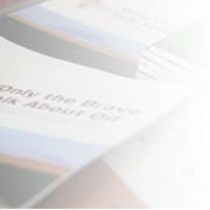






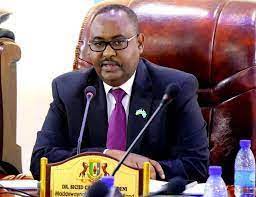
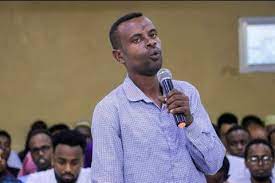
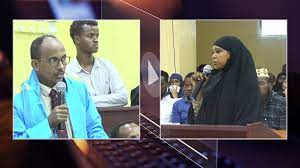

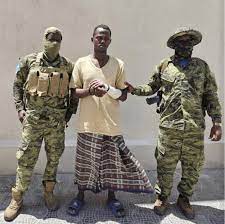


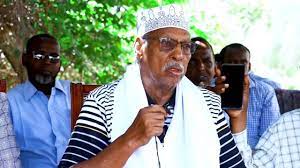
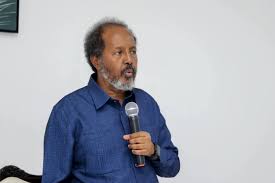
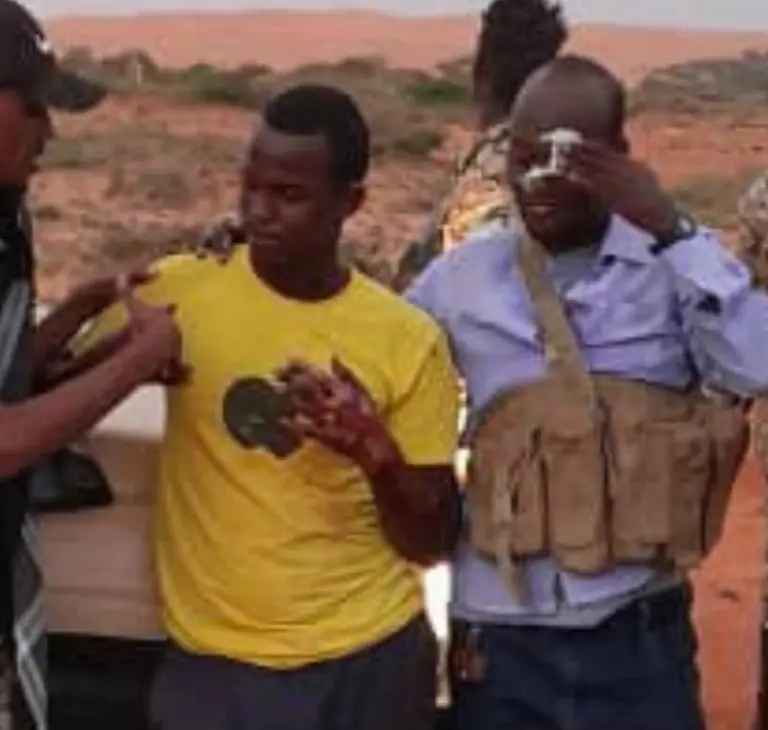
Dear friends and colleagues,
In 2005, DefendDefenders was founded with a clear mandate: to protect human rights defenders in the East a Horn of Africa. It has been a tumultuous decade for the sub-region, and at different times, certain countries - such as Kenya in 2007 and Burun